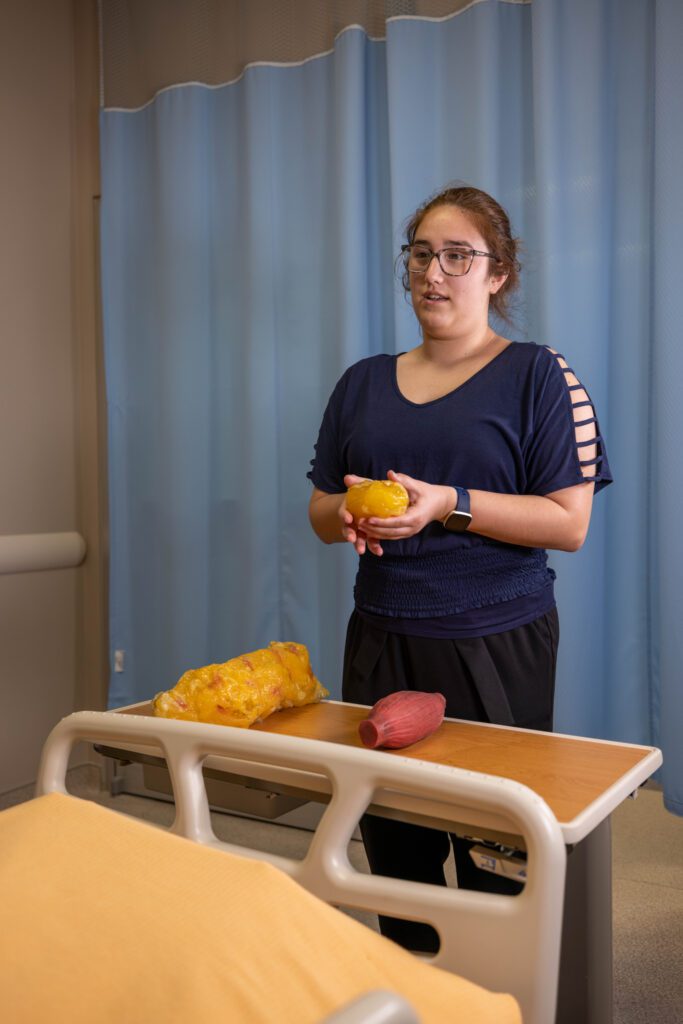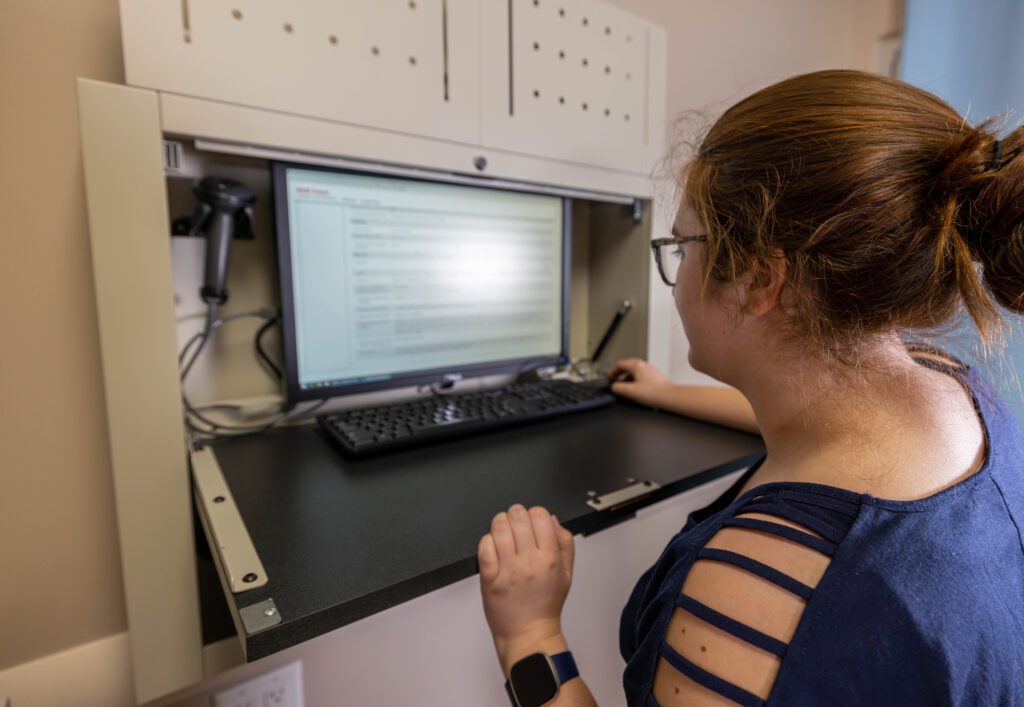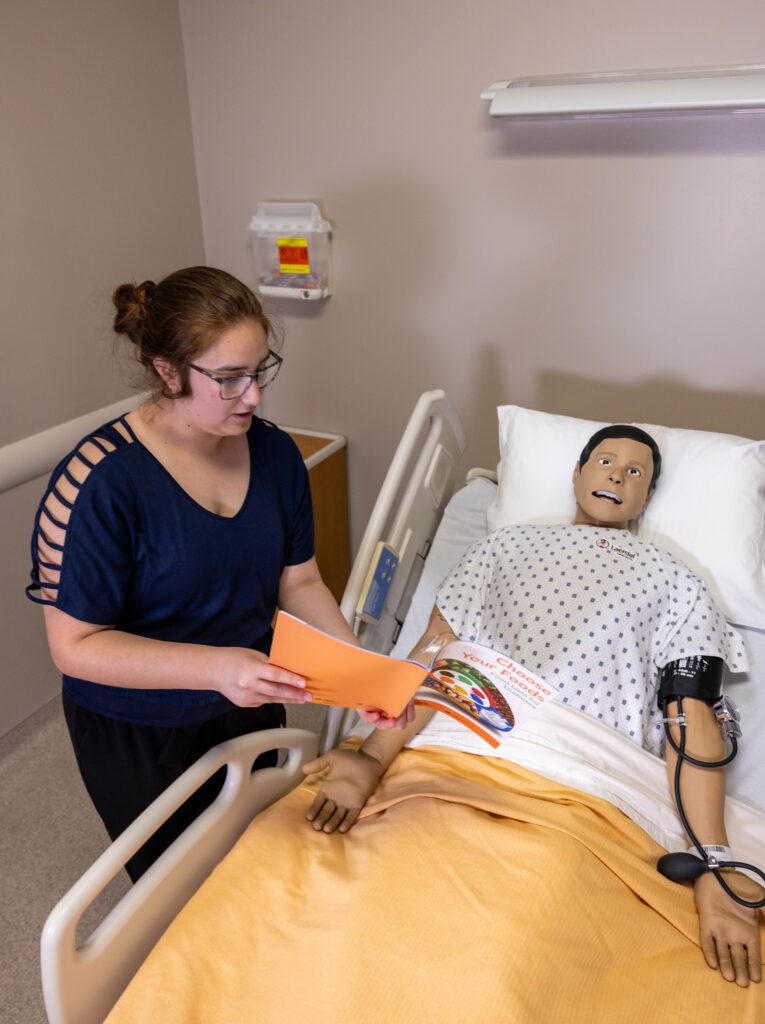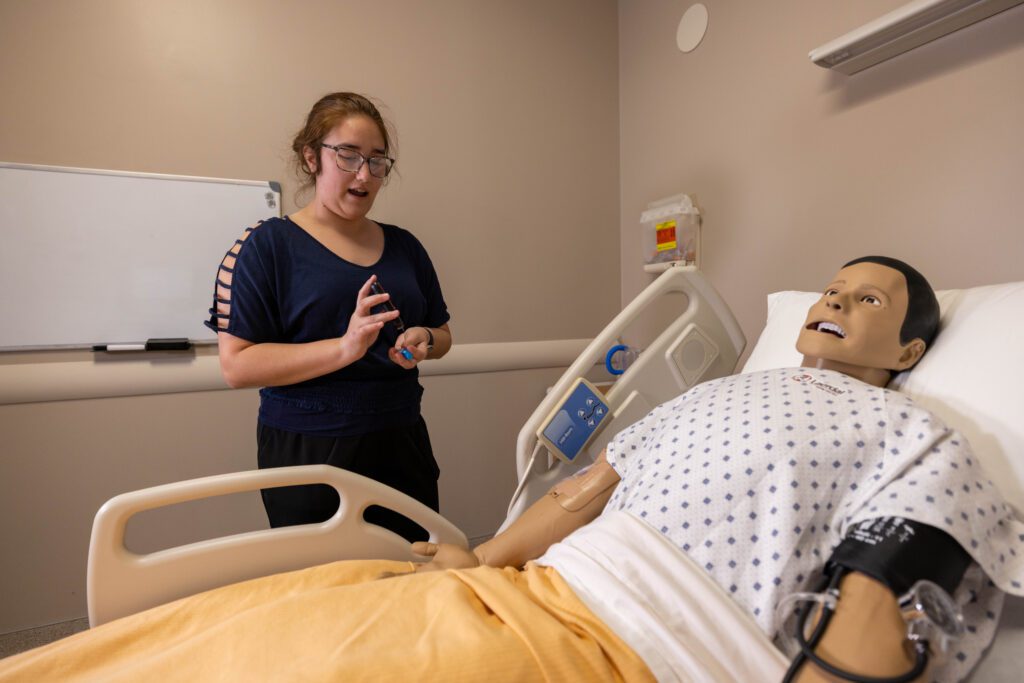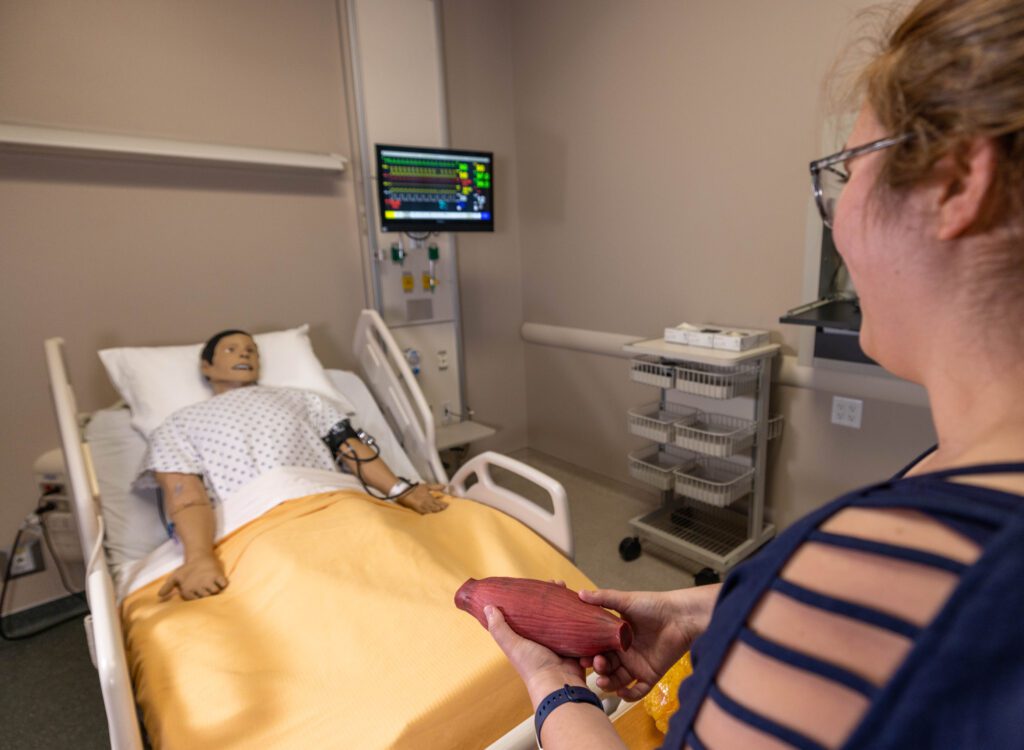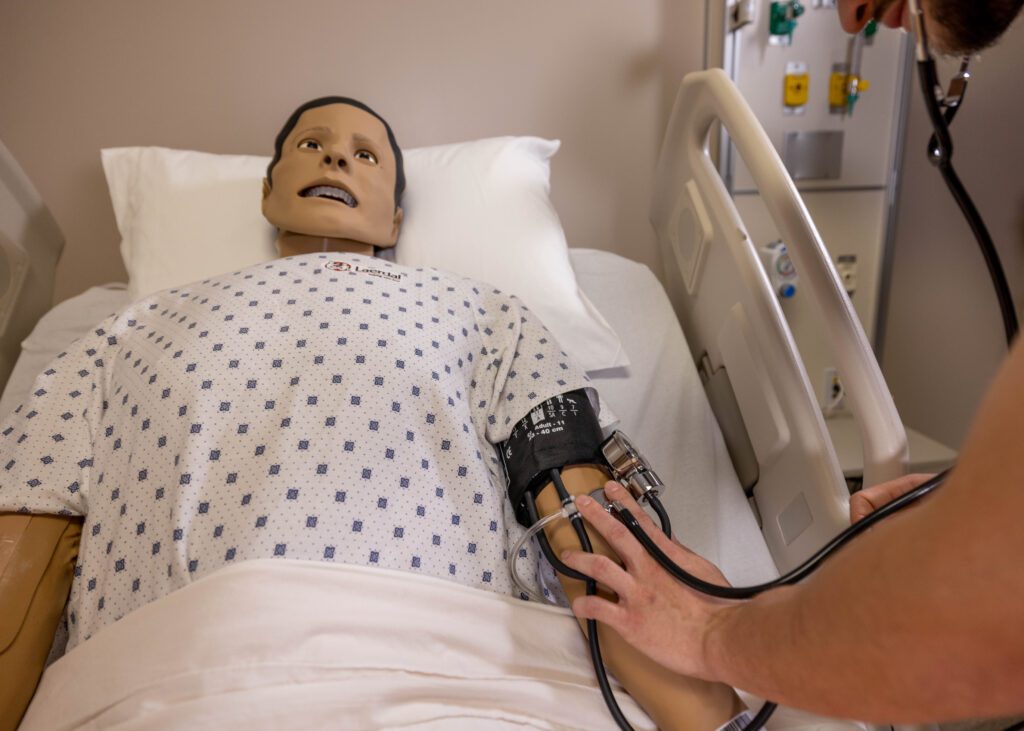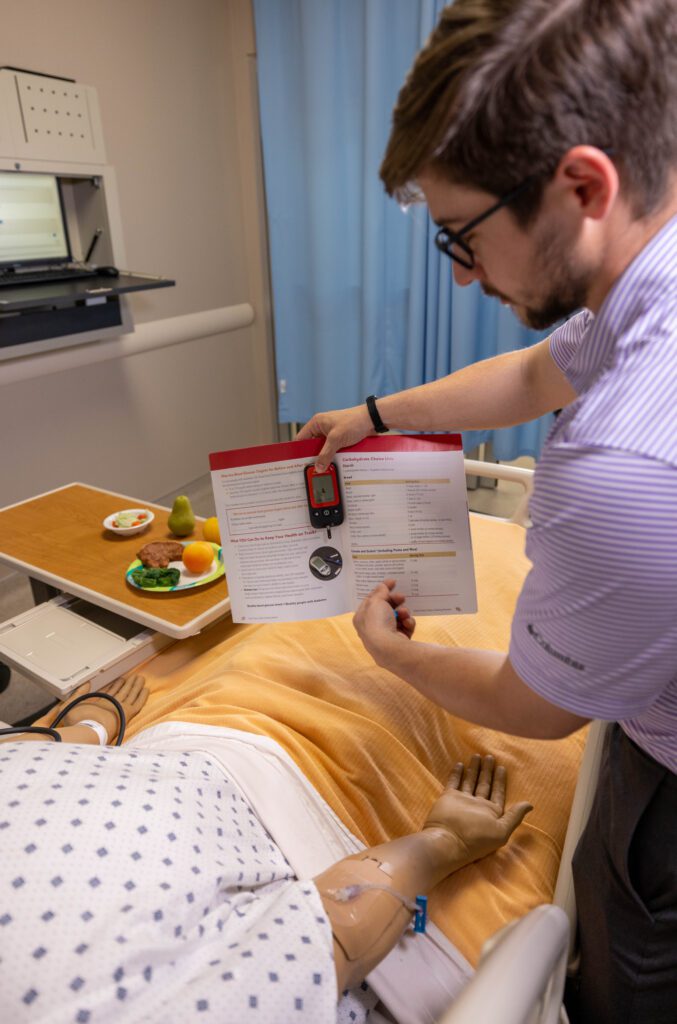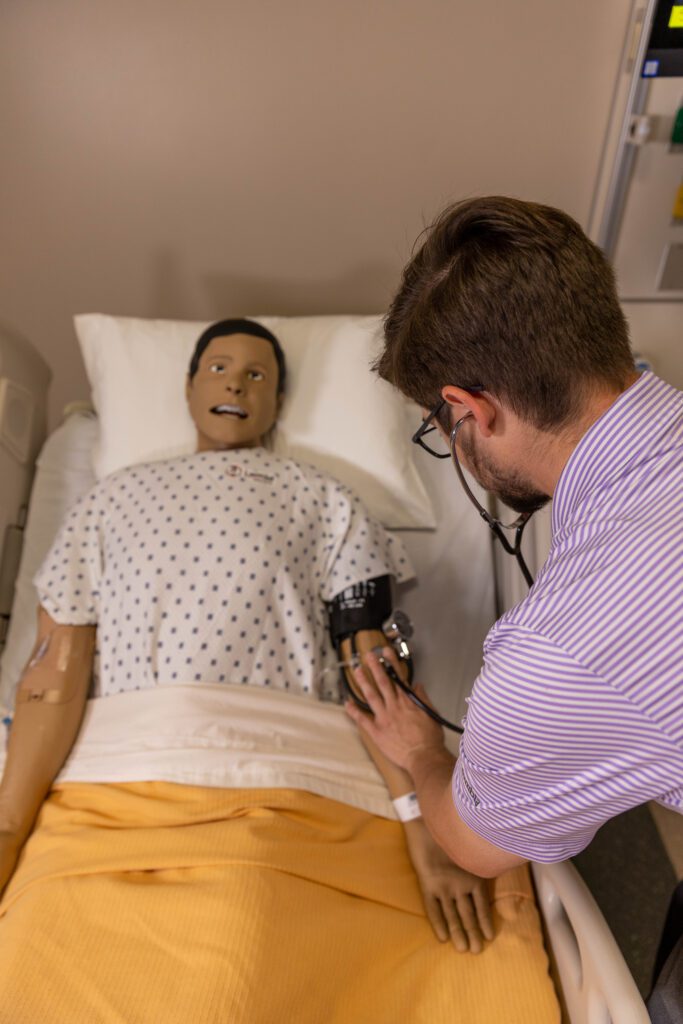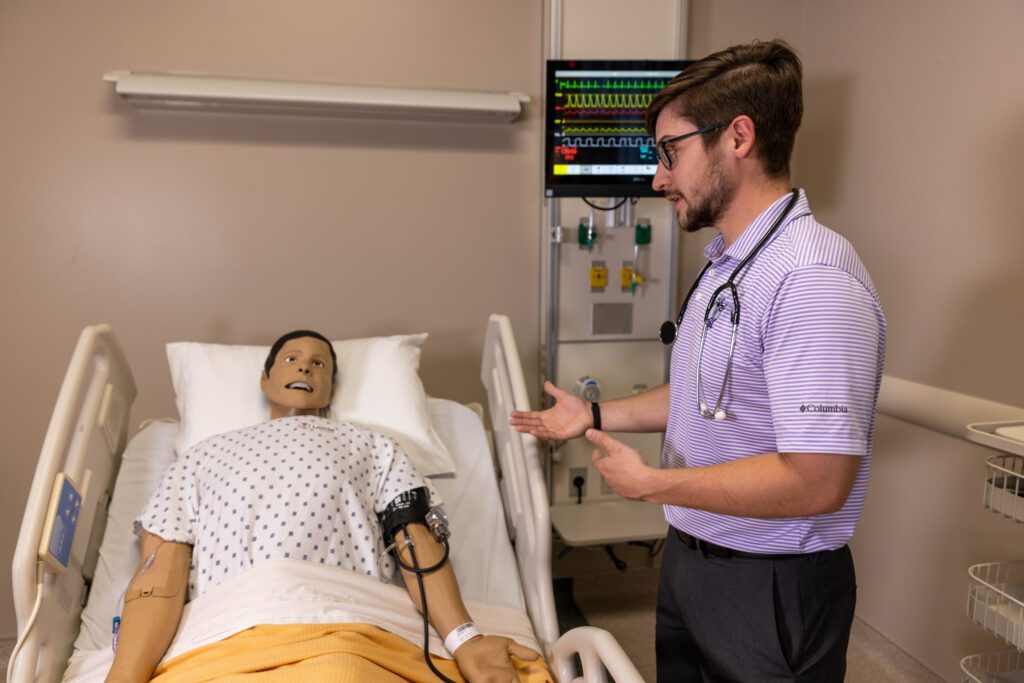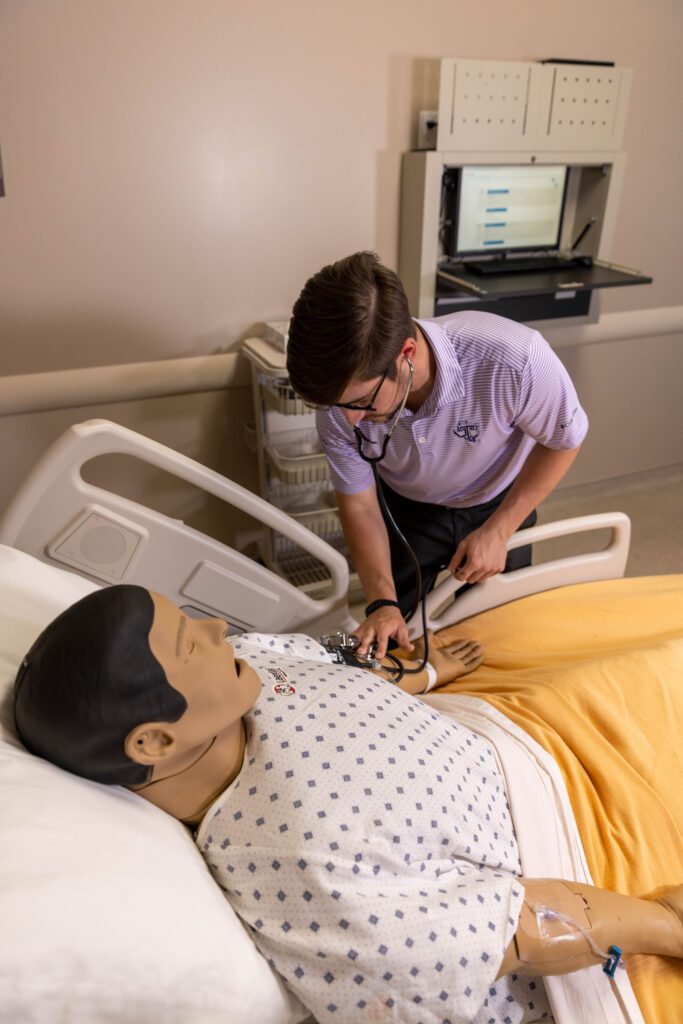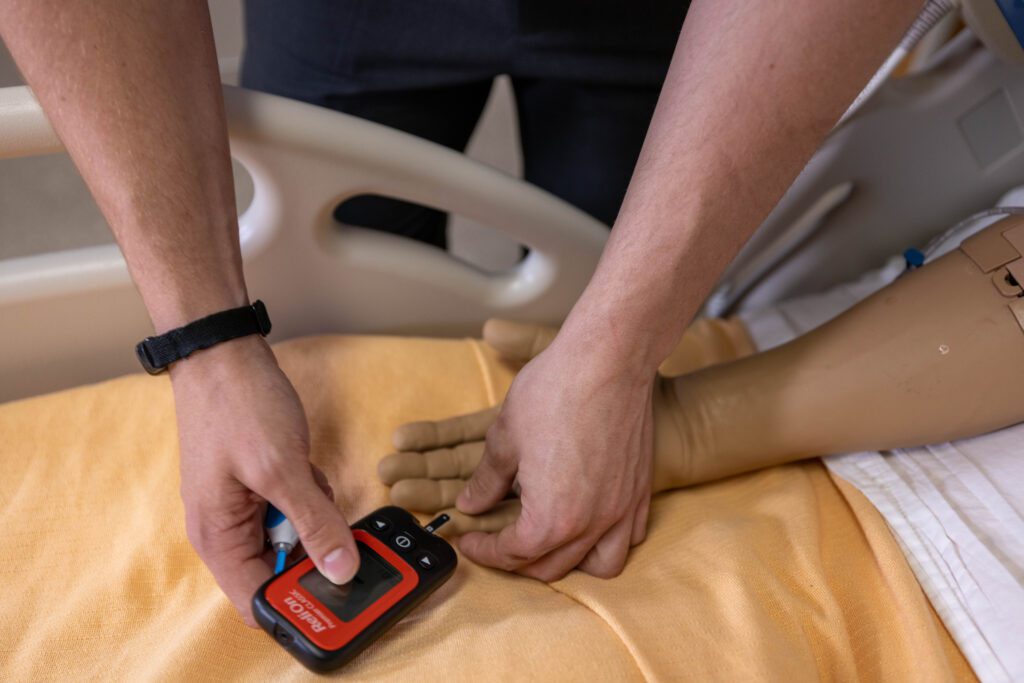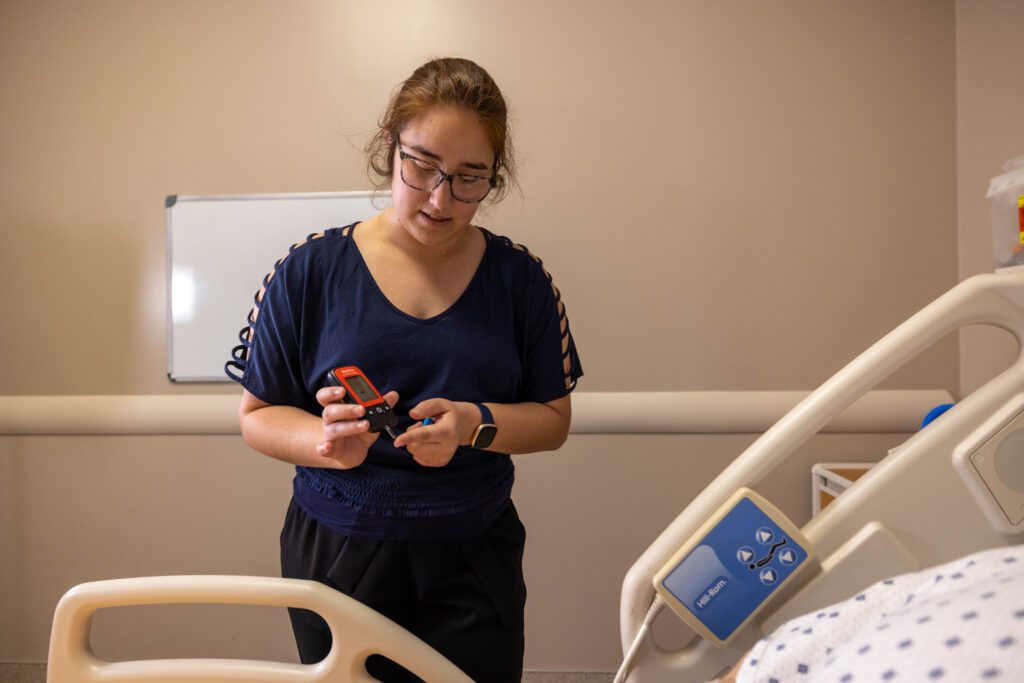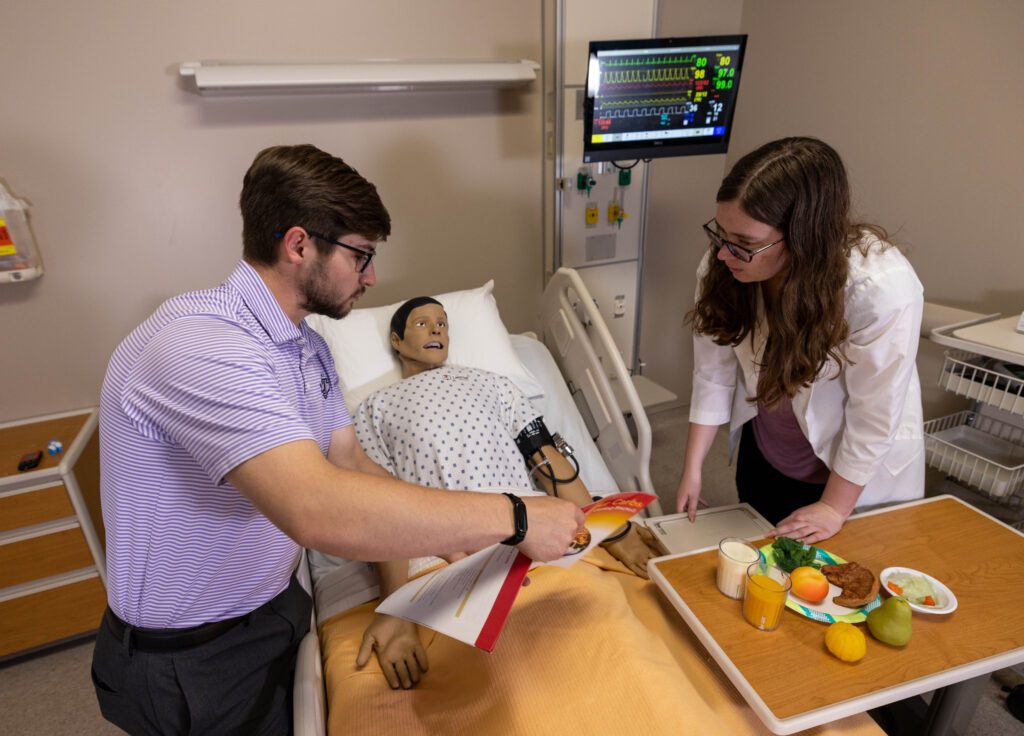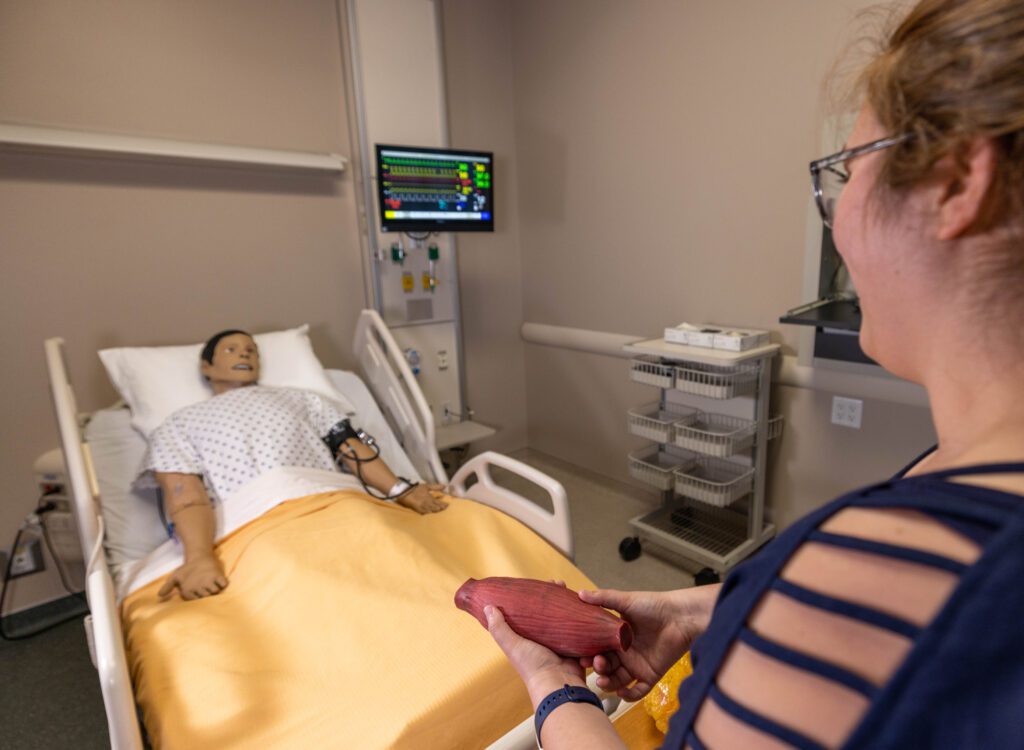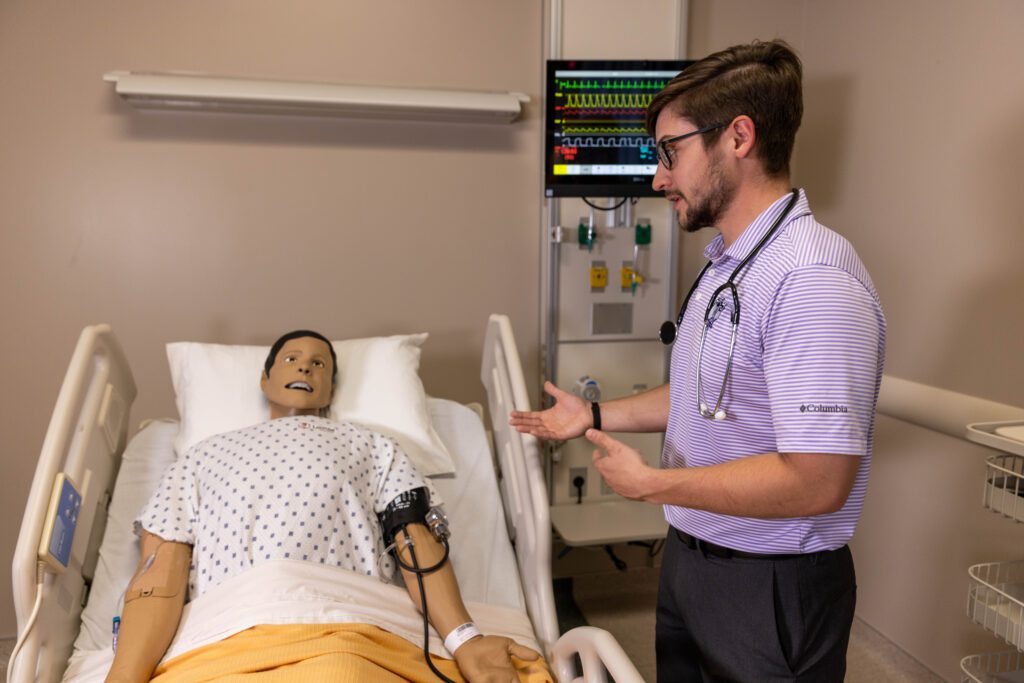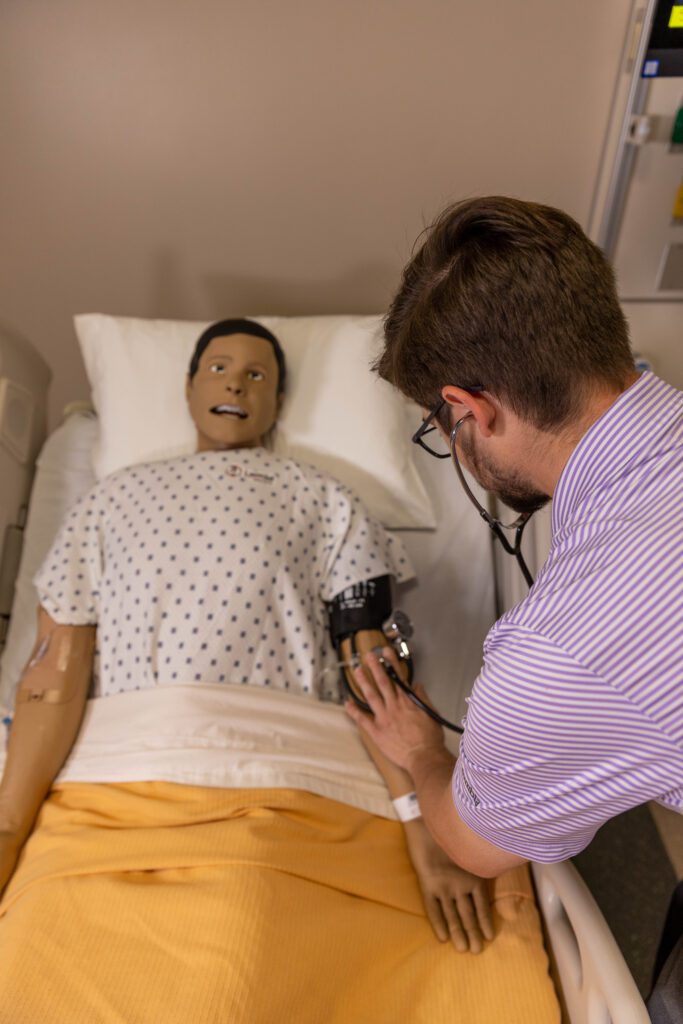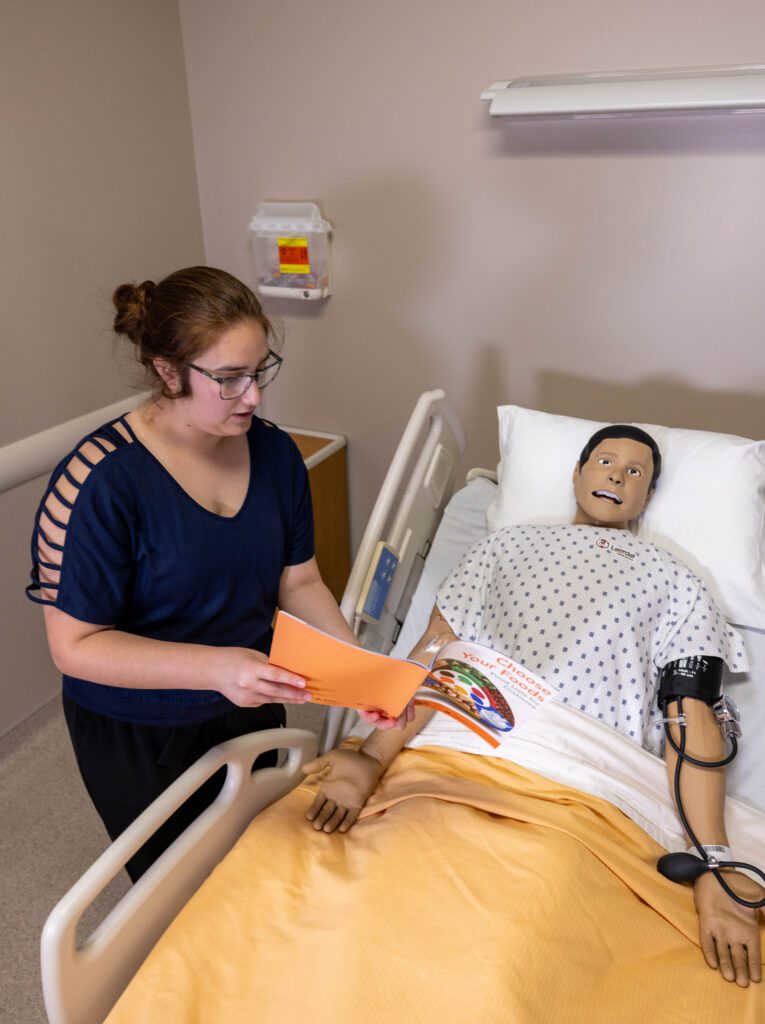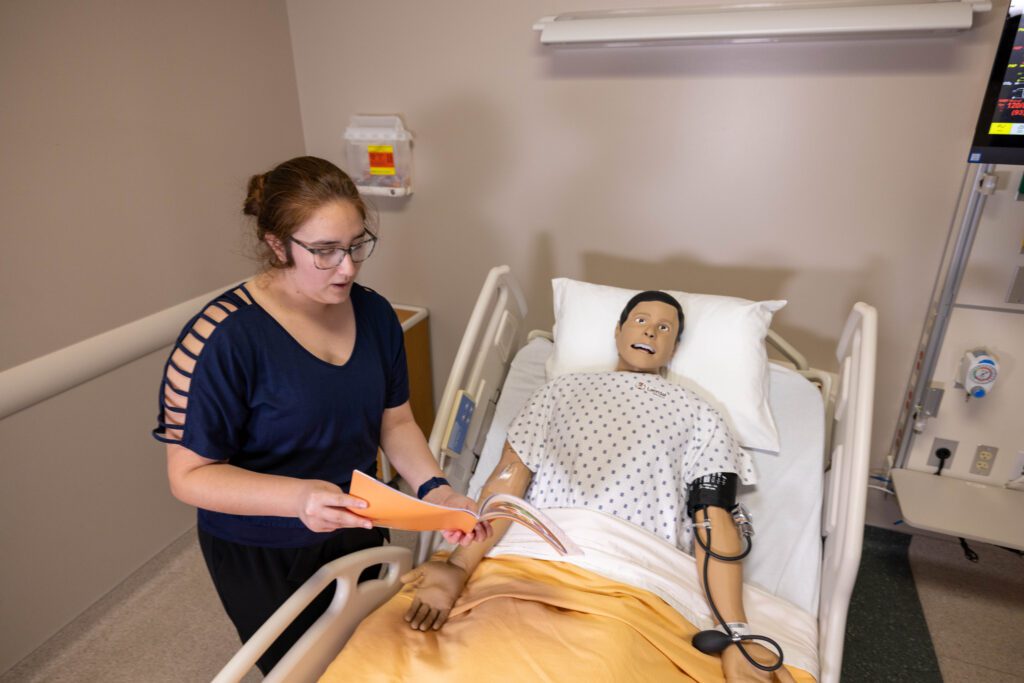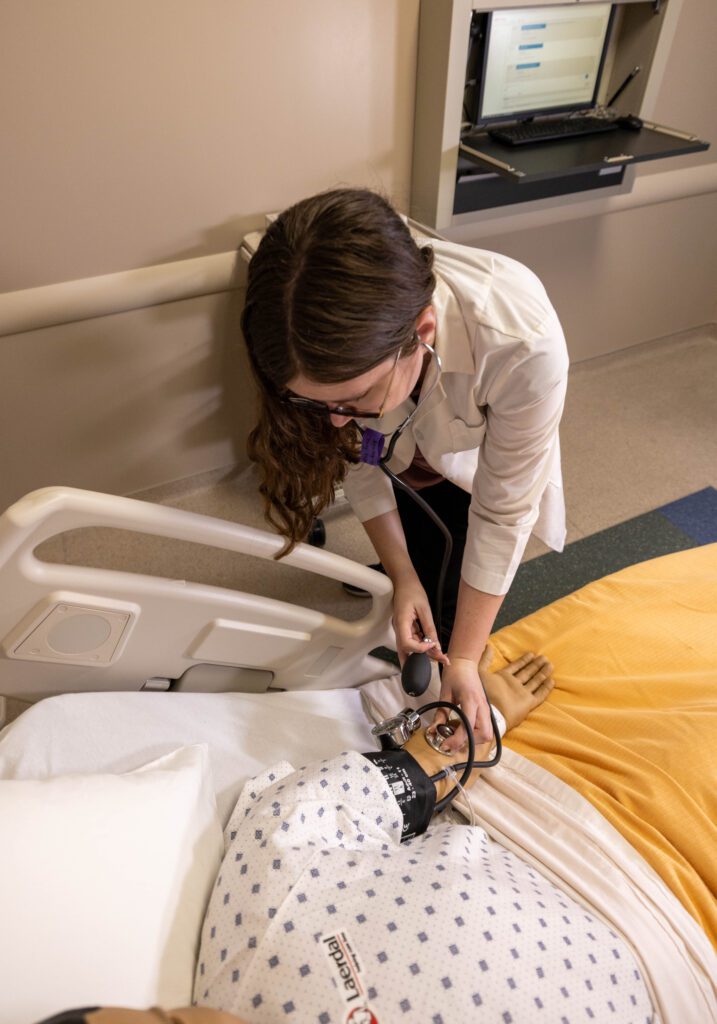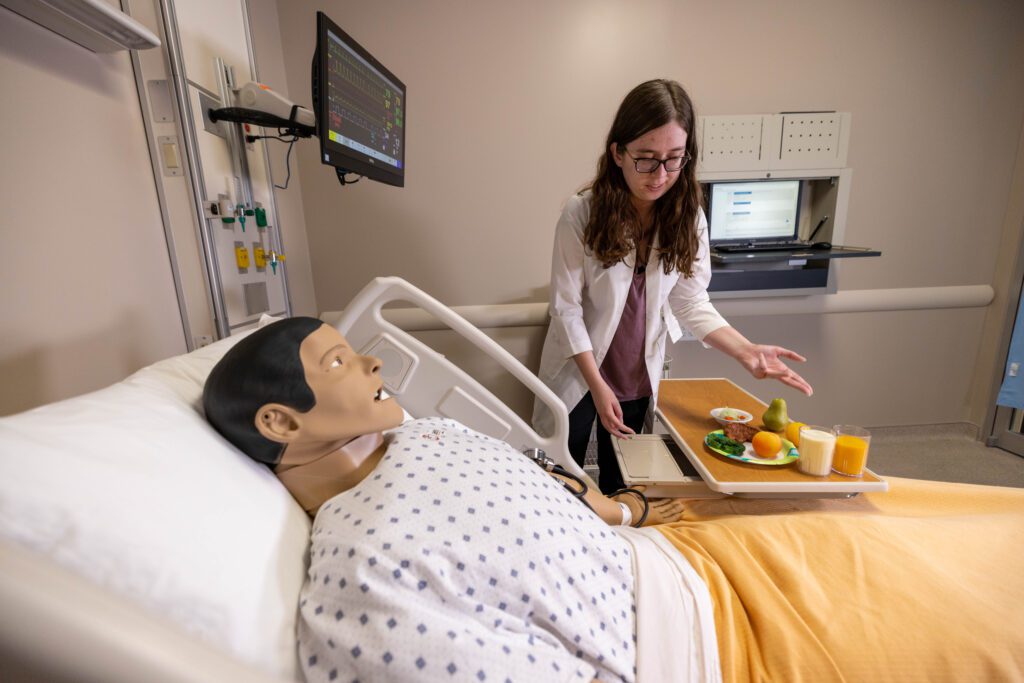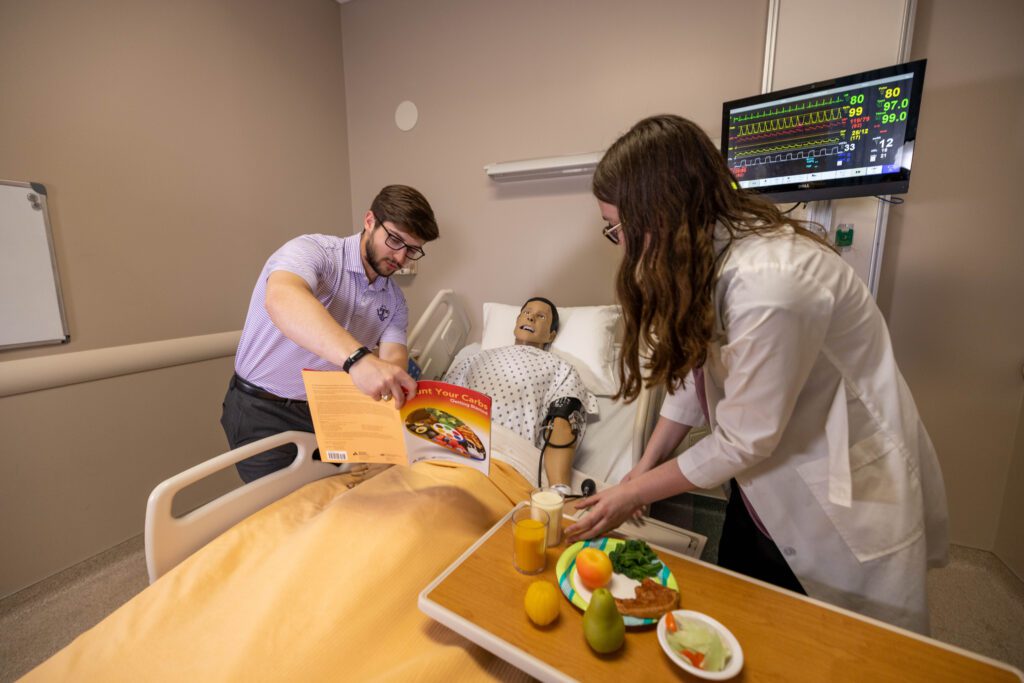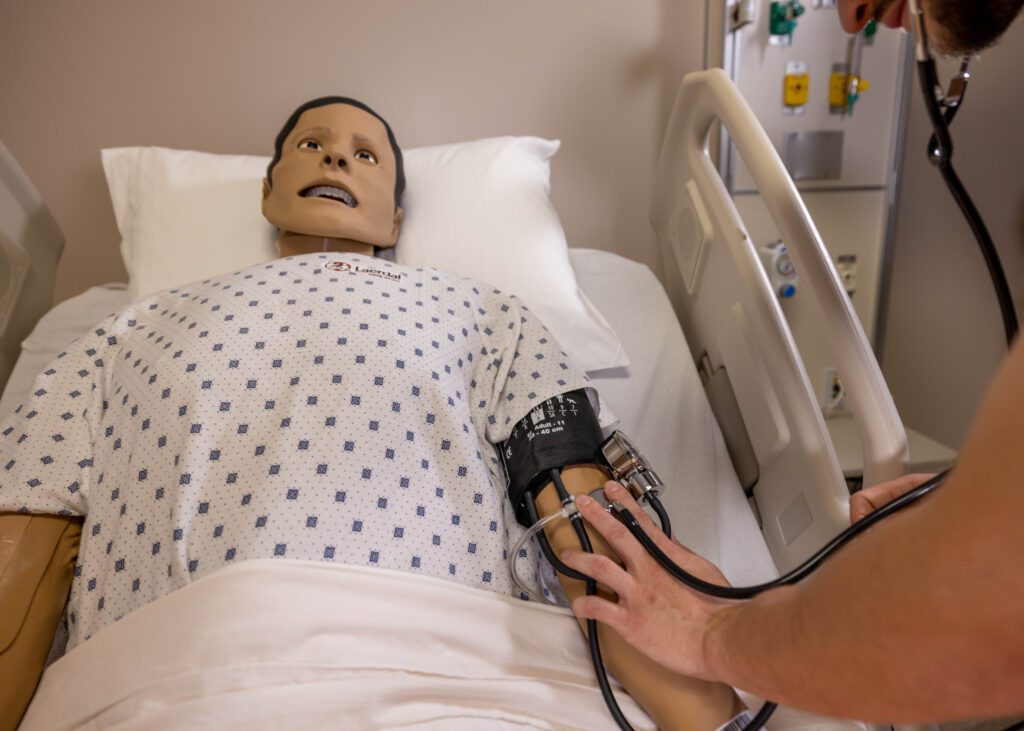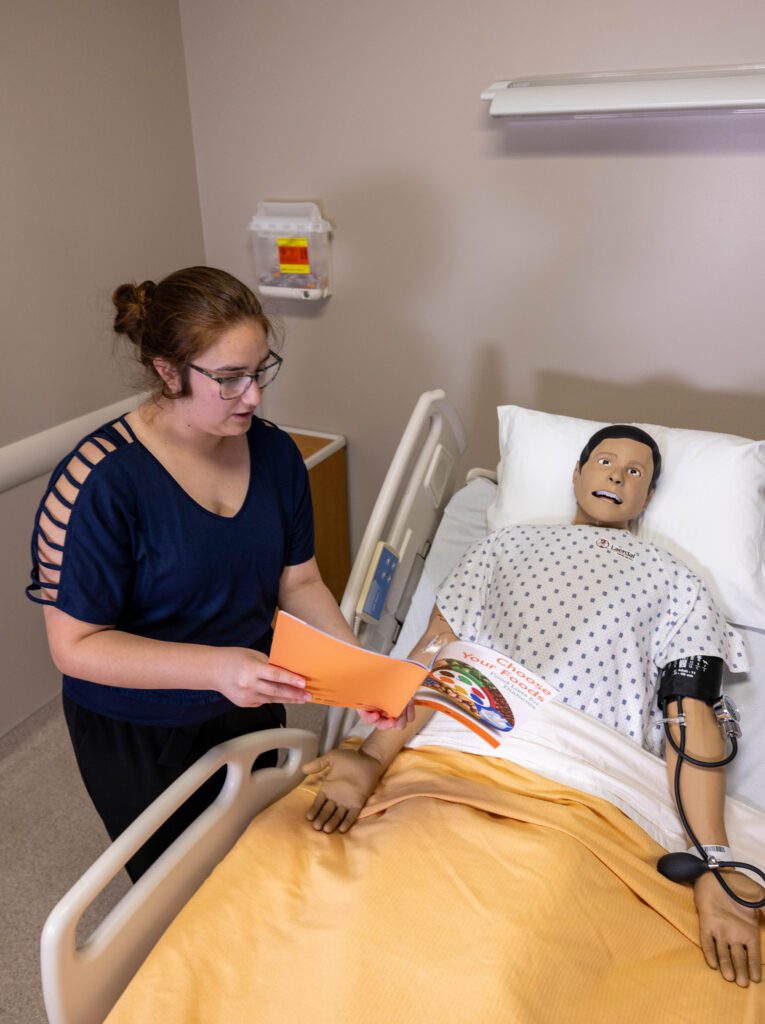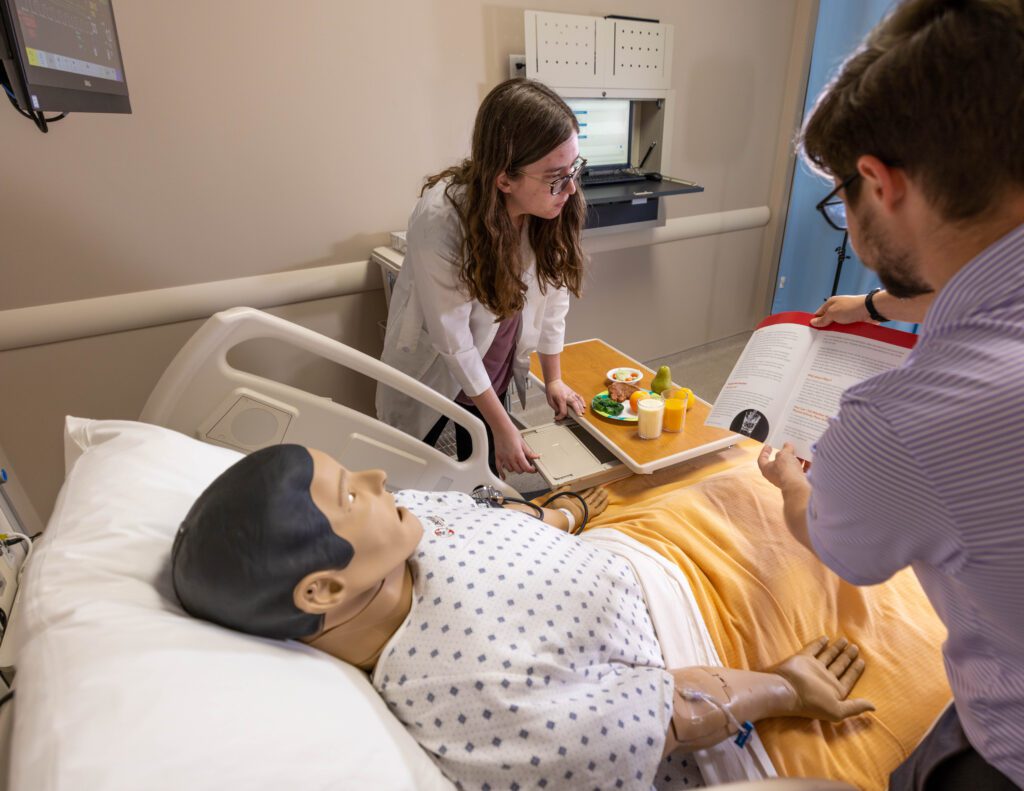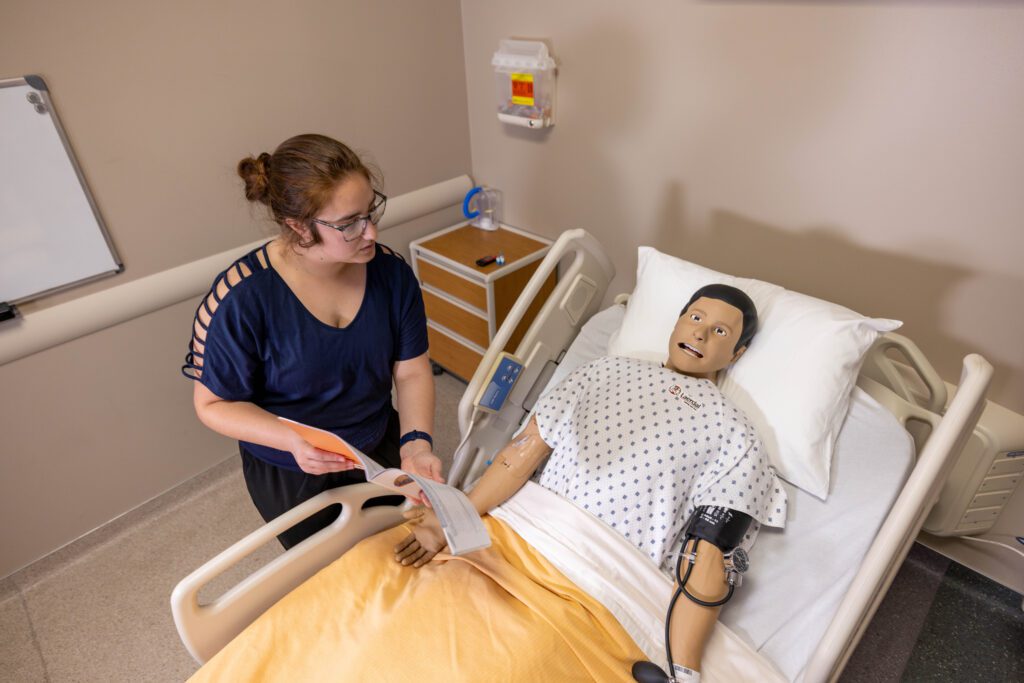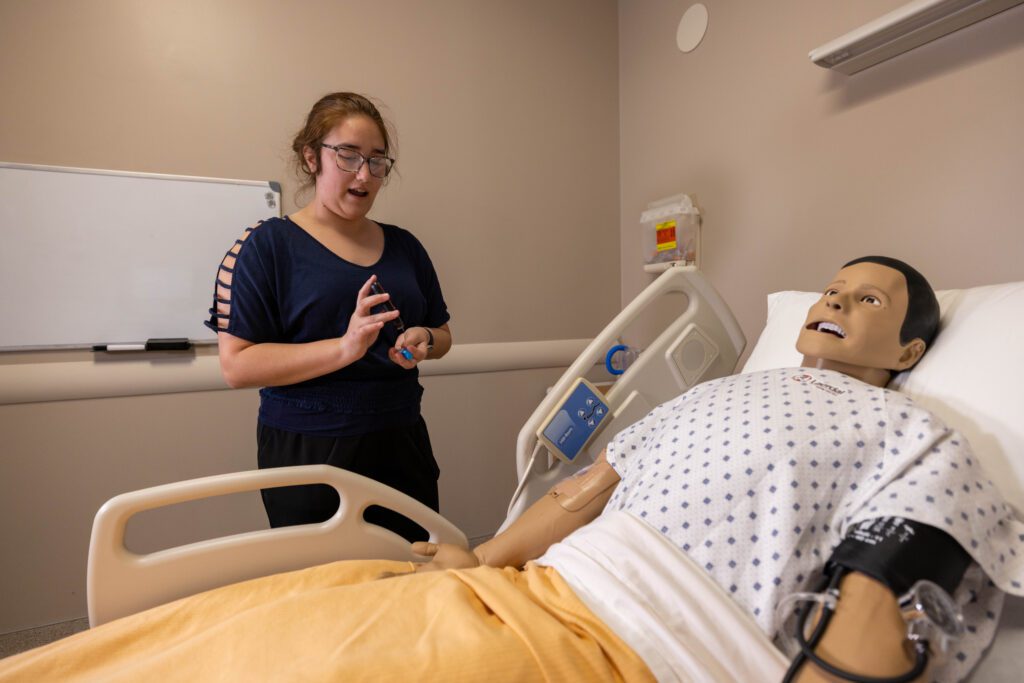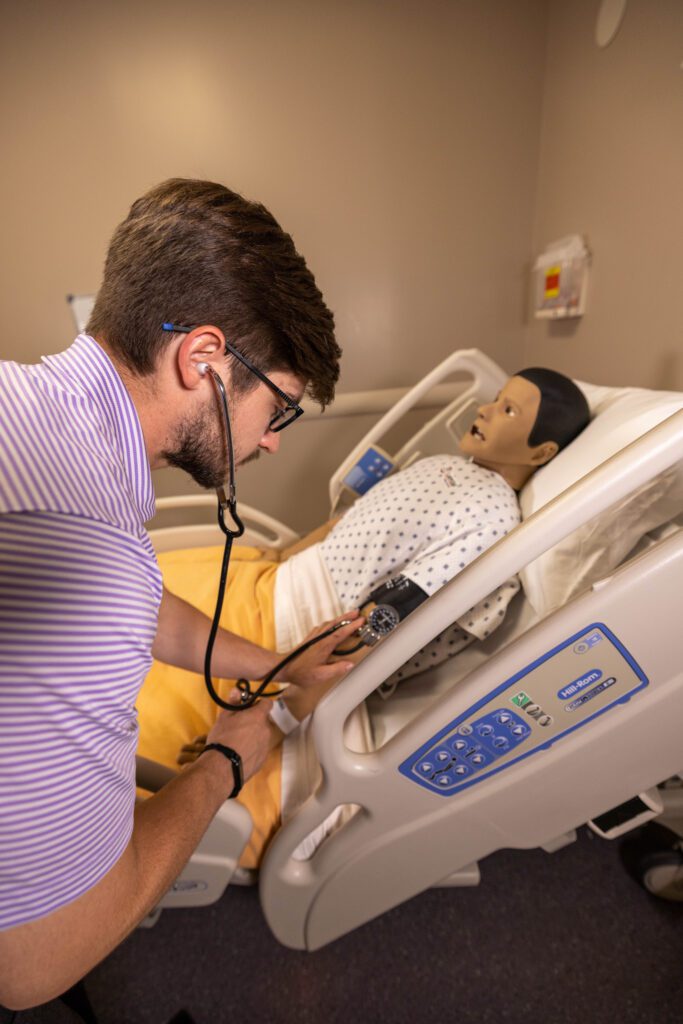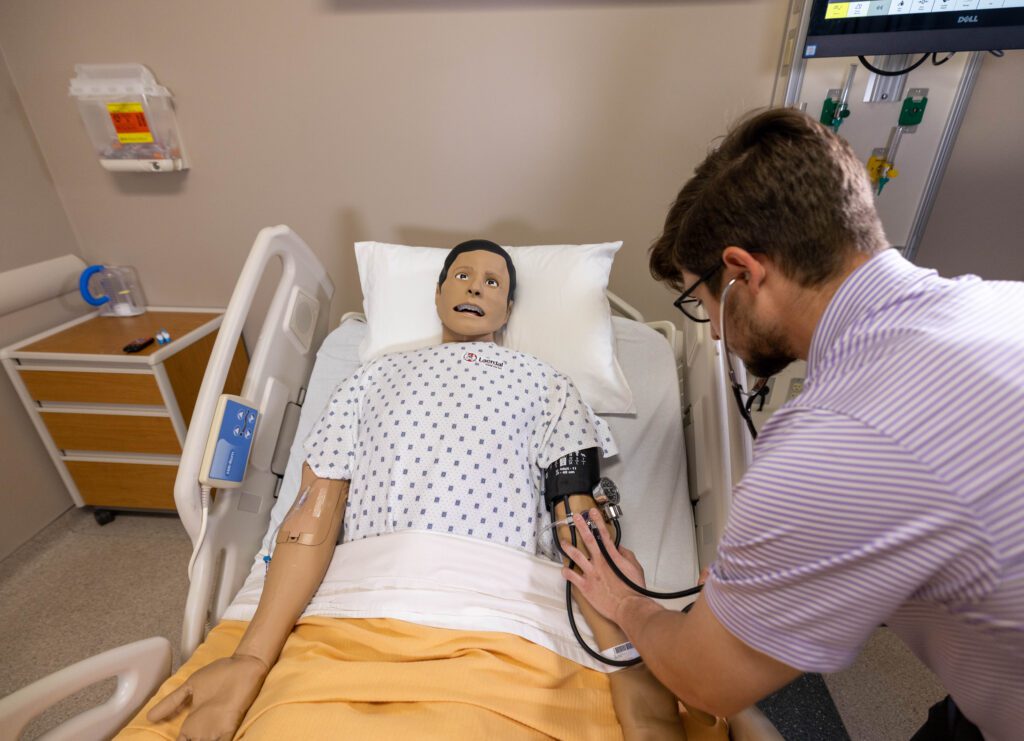Didactic Program in Dietetics (DPD)
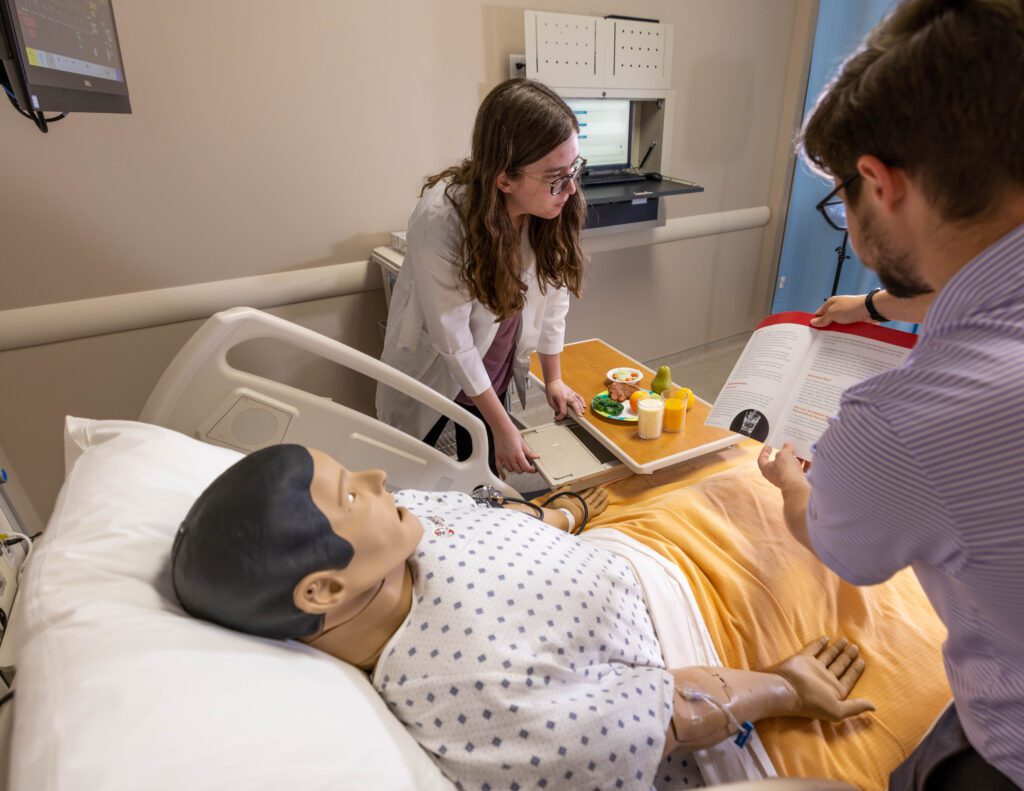
Resources
Contact DPD Director:
Paula McKeehan or 254-968-9195
The Dietetics concentration has accreditation candidacy status from the Accreditation Council for Education in Nutrition and Dietetics (ACEND) as a Didactic Program in Dietetics (DPD).
ACEND Contact Information
Accreditation Council for Education in Nutrition and Dietetics (ACEND) 120 South Riverside Plaza, Suite 2190, Chicago, IL 60606-6995 (312) 899-0400 ext. 5400 acend@eatright.org
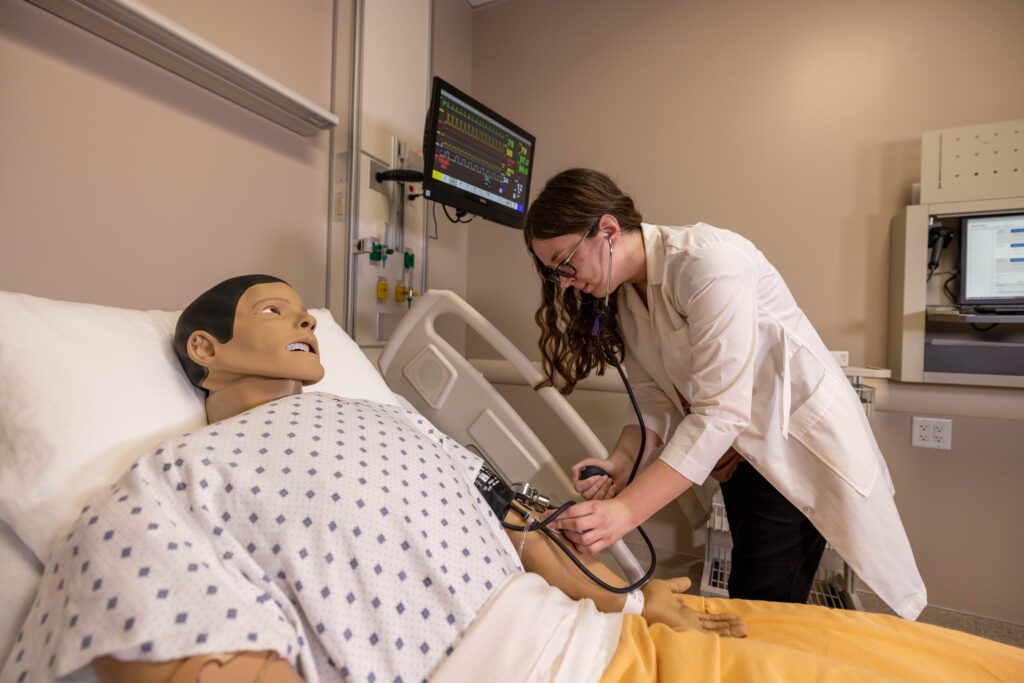
Dietetics Mission, Goals and Objective
Program Mission Statement
The mission of the DPD at Tarleton is to prepare highly qualified graduates for supervised practice leading to eligibility for the CDR credentialing exam to become registered dietitian nutritionists.
Objectives and Goals
The program outcome measures are as follows:
Goal #1 – Program graduates will be prepared for success in graduate studies, supervised practice, or as dietetics professionals.
1. At least 80% of students will complete the DPD program requirements within 3 years (150% of program length).
2. At least 60% percent of program graduates apply for admission to a supervised practice program prior to or within 12 months of graduation.
3. Of program graduates who apply to a supervised practice program, at least 80% percent are admitted within 12 months of graduation.
4. The program’s one-year pass rate (graduates who pass the registration exam within one year of first attempt) on the CDR credentialing exam for dietitian nutritionists is at least 80%.
5.When surveyed within 12 months of graduation, the mean rating that supervised practice directors/preceptors and employers will give for “area of practice” competence will meet or exceed the rating of satisfactory (3).
6. 60% of graduates who seek employment will find employment within one year of graduation.
Goal # 2 – Program graduates will demonstrate the confidence and skills necessary for success in supervised practice programs and dietetics-related jobs.
1. When surveyed, the mean rating that DPD Alumni will give for how valuable DPD courses prepared them for a supervised practice program or a dietetics related job will meet or exceed the rating of satisfactory (3).
2. When surveyed, a minimum of 50% of DPD Alumni will indicate they serve in a leadership role and/or are involved in professional or community service.
Student Learning Outcomes
Student learning outcomes (SLO) are the knowledge, skills and abilities students should demonstrate upon completion of the program. These SLO, also known as Knowledge for Registered Dietitian Nutritionists (KRDN), are required by ACEND and are regularly assessed to determine student learning and to evaluate overall program effectiveness.
All ACEND required SLO assessments are embedded in DPD coursework and will be submitted and tracked in Canvas, Tarleton’s learning management system. Details of this process are covered in the course syllabi.
Program data related to the goals, objectives and outcomes is available upon request.
Didactic Program in Dietetics (DPD)
What is a Didactic Program in Dietetics (DPD)?
A Didactic Program in Dietetics is accredited by the Accreditation Council for Education in Nutrition and Dietetics (ACEND). A DPD program equips you with the knowledge required of a registered dietitian nutritionist (RDN) also called a RD. As an RDN, you will use your advanced knowledge of food and nutrition to help promote health and help prevent and treat chronic disease.
Your dietetics degree will prepare you for a supervised practice program) and you’ll receive a verification statement at the end of this program indicating that you have met the requirements to apply for various types of supervised practice programs.
Online Learning Requirements
In addition to offering many face-to face courses, the TSU DPD does offer some hybrid and online courses.
Online learning does require that you have a secure and reliable internet connection, as well as access to a computer, webcam and audio. Note that most courses, even though they are face-to-face, require computer access, webcam and audio. The Tarleton libraries provide over 200 computers for the Tarleton community to use. Tarleton students who want to use computers in the library are not required to purchase internet service or additional equipment. For more information visit https://www.tarleton.edu/library/facilities/computers/
Academic Calendar
How to Become a Registered Dietitian
The registered dietitian is the nutrition and food expert. To become a part of the growing and vital profession of dietetics, take the following steps:
- Earn a minimum of a graduate degree from an accredited dietetics program. A baccalaureate didactic degree program accredited by the Accreditation Council for Education in Nutrition and Dietetics (ACEND) provides a foundation for a graduate degree and supervised practice program. Tarleton’s dietetics concentration in the Bachelors of Science in Nutrition Science has accreditation candidacy status from ACEND as a Didactic Program in Dietetics (DPD). Students completing a DPD will receive a verification statement which makes graduates eligible for a variety of graduate programs and supervised practice pathways. A master’s degree is required to be eligible for the RDN exam. Some accredited programs include a master’s degree, while other students complete their undergraduate in dietetics and earn a master’s degree in another field (public health, communications, etc.).
- Complete a supervised practice requirement. In addition to the graduate degree, individuals must complete at least 1,000 hours of supervised practice to gain real-world experience and apply knowledge learned in the classroom to the context of a variety of work settings.
- Pass a national exam for RDNs. Once you complete your degrees and supervised practice, you may schedule to take CDR’s Registration Examination for Registered Dietitians to become a credentialed as registered dietetics nutritionist. This is called “RDN eligibility,” meaning you have completed the requirements to become eligible to take the national exam.
- Meet requirements to practice in your state. Many states have regulatory laws licensure for food and nutrition practitioners. All states accept the RDN credential for state licensure purposes. For more information about licensure/certification requirements in all states visit the Commission on Dietetic Registration (CDR).
- Stay up-to-date in dietetics through continuing education. After successfully passing the national exam and earning the credential, RDNs maintain ongoing professional development in order to stay up to date on the latest research, recommendations and best practices.
There are several kinds of accredited dietetics education programs — each offering a different experience and “pathway” to RDN eligibility.
Meet requirements to practice in your state. Meet requirements to practice in your state. Many states have regulatory laws (i.e., licensure) for food and nutrition practitioners. All states accept the RDN credential for state licensure purposes. For more information about licensure/certification requirements in all states visit the Commission on Dietetic Registration (CDR).
There are several kinds of accredited dietetics education programs — each offering a different experience and “pathway” to RDN eligibility.
Pathway: Coordinated Programs (CP)
Coordinated programs combine classroom learning with supervised practice experiences within one program. When you graduate from a coordinated program, you satisfy both the graduate degree and supervised practice requirements and are eligible to take the national RDN exam.
Pathway: Didactic Programs in Dietetics (DPD) + Dietetic Internships (DI)
This pathway consists of two education programs: First you complete a Didactic Program in Dietetics, which is your classroom coursework. Then you enroll in an accredited Dietetic Internship for supervised practice in real work settings. A master’s degree must be completed prior to entering a DI program or during the DI program, concurrently with supervised practice. The majority of students who choose this pathway apply for a DI position through a competitive online matching process. However, some DPDs have placement agreements with DIs to ensure their graduates secure dietetic internship positions. If you are considering applying to a Didactic Programs in Dietetics, ask whether the program includes “pre-select matching.”
Students who graduate from both a DPD and a DI and have completed a master’s degree meet both the degree and supervised practice requirements to take the national RDN exam. Most DPDs offer bachelor’s degrees, while others satisfy the minimum graduate degree requirement. DI programs will either offer a master’s degree as part of their program, require interns to complete a master’s degree of their choosing while they complete the DI, or require interns to complete a master’s degree prior to entering the DI program.
Pathway: Future Education Model (FEM) Graduate Program in Nutrition and Dietetics (GP)
This pathway consists of graduate-level coursework and supervised experiential learning incorporated into one graduate degree program. When you graduate from a GP, you satisfy both the degree and supervised practice requirements to be eligible to take the national RDN exam.
Note: It’s important to differentiate accredited GPs from other master’s or doctorate programs that may not include the specific coursework or supervised practice required RDN eligibility. Examples are advanced degrees in disciplines that existing RDNs might pursue to complement their credential but that are not accredited by ACEND for their graduates to be eligible to take the national RDN credentialing exam.
Assessment of Prior Learning
For students new to TSU who are transferring in credit, the DPD at TSU follows the university policy related to transfer credits. https://www.tarleton.edu/admissions/transfer/
Policy:
In addition to course credit, the DPD is required to track completion of specific knowledge assessments, known as KRDNs. Each DPD student must receive a 70% or better on all KRDN assessments to receive a verification statement (See
“Verification Statement Requirements and KRDN Remediation Policy”). The verification statement, along with a B.S. degree from our accredited program, is what enables you to go on to apply for a dietetic internship, a specific type of supervised practice program.
KRDN assessments are embedded into upper-level nutrition and food science courses. If you are transferring in any upper-level (-3000 or -4000) nutrition (NUTR) or food science courses (FDSC), the DPD director is required to confirm completion of KRDN assessments before issuing a verification statement.
Procedure:
You will need to provide the following to the DPD Director in order for the assessment of prior learning to be completed:
- Transcript(s) verifying the completion of the course(s). If the course is finished, the expectation is that you provide an official transcript. If you are currently enrolled in the transfer course, an unofficial transcript is fine (to verify enrollment), but note that you will need to provide an official transcript before receiving a verification statement.
- A syllabus for each upper-level NUTR course you are transferring. This should be done the semester following completion of the course, or at least 6 weeks prior to graduation.
The DPD director will review both the transcripts and syllabus, and complete a form known as the “Knowledge (KRDN) Assessment for Transfer Credits.” If it is determined that you did not meet the KRDNs with the transfer credits, you will be asked to complete KRDN assessments outside of your coursework. You must complete all KRDN assessments with a 70% or better prior to graduation and, if you do not, you will not be issued a verification statement of completion
Post-Baccalaureate Admission Requirements for Majors OTHER than Dietetics and Nutrition Science or Similar
The most common pathway to become a Registered Dietitian Nutritionist, is the completion of a specific program of study called the Didactic Program in Dietetics (DPD). If your degree is NOT in Dietetics and Nutrition Science or a similar degree and you do NOT have a DPD verification statement, you will have to take some “leveling courses” to get DPD verification BEFORE you can apply for specific types of supervised practice programs requiring a verification statement. The Tarleton DPD Director can review your undergraduate transcript from other universities and make recommendations for your specific “leveling” needs. To inquire about the courses you needed to meet the competencies outlined by the Accreditation Council for Education in Nutrition and Dietetics (ACEND), please contact the DPD director. Courses are also listed in Appendix D of the DPD Student Handbook.
Students who have already earned a bachelor’s degree have the option to complete a second undergraduate degree. Once accepted to Tarleton, select Dietetics Track under concentration in Nutrition Science as a second degree, to complete the required coursework and to obtain financial aid. Contact the Financial Aid office for specific benefit information. You can also complete the program as a non-degree seeking undergraduate student to earn a verification statement; however, financial aid will not be an option. All post-baccalaureate students should complete a matriculation form for enrollment into the DPD.
Students with an undergraduate nutrition degree from another university seeking a verification statement.
If you have a degree in Dietetics and Nutrition Science or something similar from another university and are seeking a verification statement from TSU, a further assessment of prior learning will take place to confirm prior learning outcomes were met in the courses already completed. You may be asked to provide syllabi and may be required to complete assignments outside of the courses you are taking at TSU to meet specific competencies.
The DPD Director will provide you with a copy of the required courses, retain a copy in their records, and send a copy to the academic advisor. It typically takes two years for students who do not have a science degree to complete the undergraduate coursework. A student must submit the DPD Program Matriculation Form and receive approval from the program director in order to be enrolled in the DPD as a non-degree seeking student. Once completed, the DPD Director will issue you a verification statement which gives you eligibility to apply for a dietetic internship or other type of supervised practice program that requires a verification statement.
Graduation and Program Completion Requirement
Students have completed the Tarleton DPD when:
1. They have completed the 120-hour BS Degree Curriculum in Nutrition Science with a concentration in Dietetics.
2. Students have completed all KRDN assessments with a grade of 70% or greater. (See Remediation Protocol)
3. Students have received a verification statement of completion.
Graduation Under a Particular Catalog
To earn a degree from Tarleton State University, students must fulfill all requirements outlined in a specific University catalog within six years of selecting that catalog. For instance, if a student graduates under the 2024-2025 catalog, all degree requirements must be completed by August 2030. Active-duty military students may extend the six-year limit by one year for each year of service, up to four years.
Students can choose the catalog:
1. When they first enroll at Tarleton State University.
2. For any subsequent year they are registered at Tarleton.
3. At the time of their first enrollment in higher education.
Note: Students registering for the first time in the summer session may choose the catalog from the previous spring or the subsequent fall.
Graduation FAQs
When should I apply for graduation?
Students should apply 1 semester before their anticipated graduation. The registrar’s office publishes the filing date.
Where do I apply for graduation?
When is graduation?
Tarleton holds three commencement exercises a year, December, May and August. For actual dates, check the link above.
When and where do I order and pick up my cap and gown?
For dress codes and order options visit https://www.tarleton.edu/graduation/graduates/regalia.html
For more information or eligibility requirements contact your college or program advisor.
Remediation Protocol
Beginning in Fall 2022, DPD faculty will start to track student grades on all assessments associated with KRDNs. The criterion for demonstrating satisfactory performance is a 70% or greater on all assignments associated with KRDNs. This must be met for all DPD KRDNs for the student to receive a verification statement, and students will be made aware of this in NUTR 1307, as well as by the policy in DPD handbook and a statement on the DPD website. If a student receives less than a 70%, remediation will be required. Below is a step-by-step description of the protocol for remediation:
- A DPD student receives a grade less than 70% on an assignment associated with a KRDN. Instructor of record contacts the student, letting the student know that they must re-submit the assignment in Canvas or Qualtrics University and must receive a grade of 70% or better on the re-submission. With this email from the instructor, students will also receive a link to the remediation policy in the DPD Student Handbook. The instructor of record will indicate the name of the student, KRDN requiring remediation, and date of first remediation submission attempt in an Excel spreadsheet housed within the DPD Microsoft Teams folder. In the aforementioned excel, the instructor of record will indicate whether the student successfully or unsuccessfully completed remediation.
If a student is unsuccessful at completing remediation, that student will be contacted by the DPD Director. The DPD Director will then work with the student on further remediation efforts.
Cost of Attendance and Financial Resources
Student Expenses
Rates
There are no specific admission requirements for the DPD. Students must follow admission requirements outlined by the university.
Additional program-specific estimated expenses include:
| Item | Cost |
| Graduation | $60-100 Regalia if participating in commencement ceremonies |
| Lab uniforms/expenses (optional) aprons are provided | $50 |
| Educational Materials/Textbooks | $500- 1000 estimated per semester |
| Academy Membership (optional) | $58 annually |
| Miscellaneous (transcripts, graduate and supervised practice application fees) | $100-300 estimated (This will vary depending on location selected for job shadowing and the number and type of graduate program in which a student applies) |
For an estimation of tuition costs by academic semester, state of residence and delivery method of course, view the TSU tuition and fees webpage. This includes any fees associated with the university.
Tarleton supports a live-on campus requirement of two years for new incoming students (freshmen) and transfer students with less than 12 credit hours, including students with AP and dual-credit. Transfer students with more than 12 credit hours are required to live on campus for 1 year. All residential students are required to have a meal plan. Visit housing for more information on pricing.
| Tuition | Cost |
|---|---|
| Texas Resident – Undergraduate | $194.36 per hour |
| Differential Tuition – College of Health Sciences and Human Services | $52.79 per hour |
| Tuition | Cost |
|---|---|
| Texas Resident – Undergraduate | $179.04 per hour |
| Nonresident – Undergraduate | $588.04 per hour |
| Differential Tuition – College of Health Sciences And Human Services | $50.27 per hour |
| Service | Cost |
|---|---|
| University Services Fee – Undergraduate | $94.04 per hour |
| Health Service Fee | $4.91 per hour |
| Excessive Hours Fee | $100.00 per hour |
| Intercollegiate Athletics Fee | $35.00 per hour with $455.00 maximum |
| Parking Fee | $100.00 |
| Recreational Sports Fee | $100.00 per semester |
| Repeated Courses Fee | $100.00 per hour |
| Room Application Fee (required, nonrefundable, residence hall students) | $100.00 |
| Student Center Facility Fee | $3.96 per hour with $39.60 maximum |
Visit Tarleton expenses for detailed explanation.
Financial Aid and Program Scholarships
Financial Aid and Program Scholarships
Tarleton State University provides over $106 million annually in financial aid. Learn how the Office of Financial Aid can help you fund your educational goals. Contact the Office of Financial Aid.
Students interested can apply for scholarships. Nutrition Sciences offers Jewell Taylor Dietetics scholarship. Students interested in this scholarship must complete the general scholarships application.
DPD Students
